It would be great – and it was
More than 600 members attended the annual general meeting in Finansforbundet in Nordea last Friday night. It came into an exciting debate on – among other things – salary and hybrid working
’It would be great’ was the overall theme for the evening.
Several matters are great, but lots of things could also be even better in Nordea. This was rammed home by president Kasper Skovgaard Pedersen in his opening address. His first as president after he was appointed ad interim when Dorrit Brandt in September was elected as the new president of Finansforbundet.
In total, 257 participants in the congress room and 375 remote participants joined the meeting. Many hybrid attendants joined in one of the 25 local events around in the country.
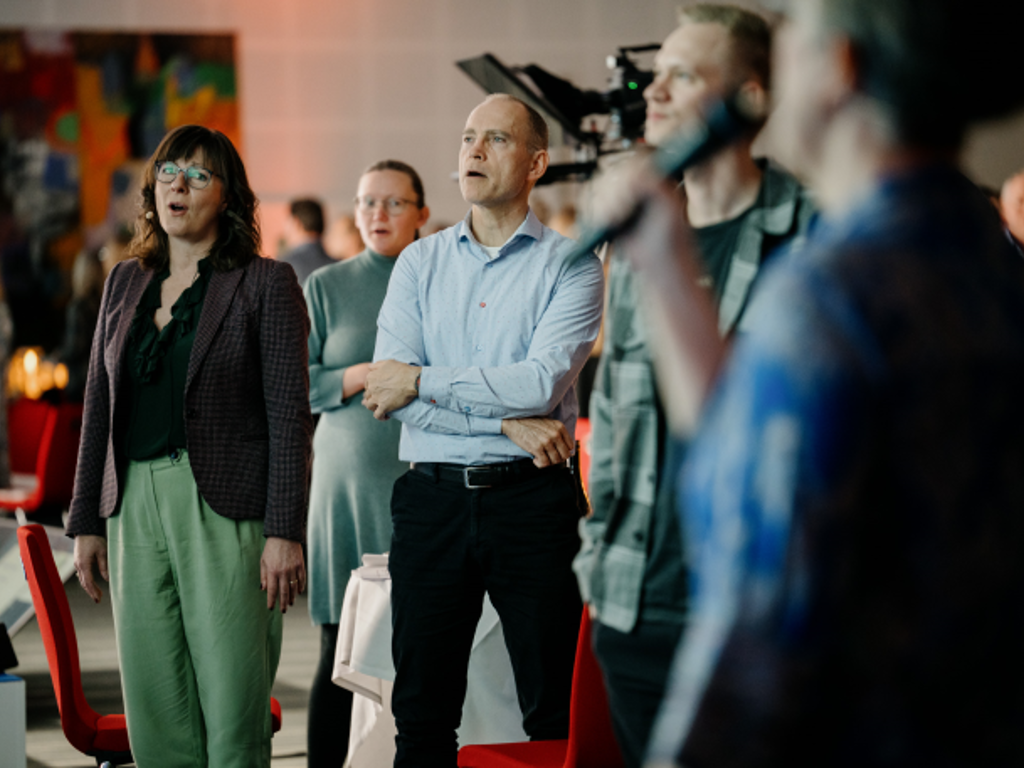
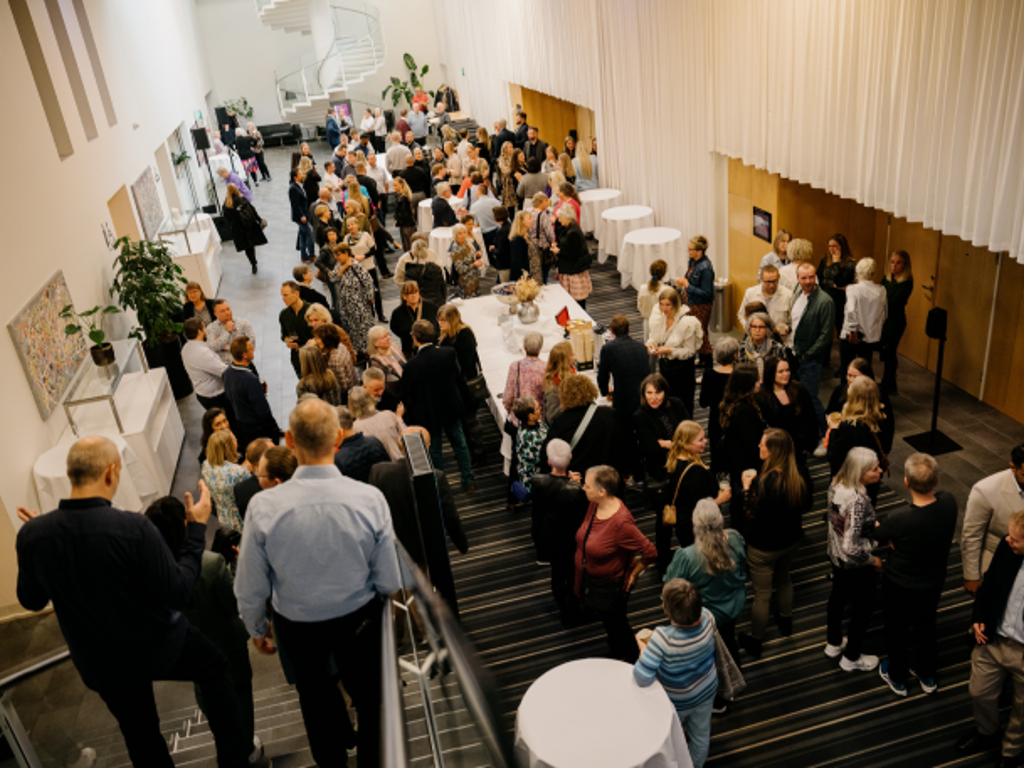
”I read on Intra that the management wants Nordea to be ‘In a league of our own’. If that is the case, Nordea needs to be the best financial work place as well,” Kasper Skovgaard Pedersen claimed.
One of the matters, clearly needing an improvement, is the financial sectors’ reputation.
Kasper Skovgaard Pedersen mentioned the many situations where employees joining social events need to defend that they work for Nordea.
”Our sector has an image, ranking just above the second-hand car dealers. It would be great to improve,” Kasper Skovgaard Pedersen said.
Coffee date with Pelle Dragsted
Kasper Skovgaard Pedersen finds it about time to get going with the rhetorical offensive towards the politicians.
Nordea as company behaves decent and is running a responsible business. But …
”We need to put our feet down to politicians trying to score brownie points at the votes-account. I don’t want to mention any names, but Pelle Dragsted from the Enhedslisten (the political party The Red–Green Alliance or Unity List): I would really like to invite you for a cup of coffee, and I want to tell you that your exorbitant smear campaign affects the wellbeing of thousands of financial employees,” said Kasper Skovgaard Pedersen.
”Our professional work has an influence on real people and real lives. It is something we can and should be proud of. And that is not for a prejudiced politician to stir up on,” said Kasper Skovgaard Pedersen.
He, by the way, announced during the weekend that Pelle Dragsted has accepted the invitation.
Stress is still a challenge
Fighting for a good work environment is very important to Finansforbundet in Nordea.
”We must never end up with a culture of silence. I know that all union representatives have their attention on that. The union representatives raise our level of awareness if the work environment is lagging behind,” said Kasper Skovgaard Pedersen, sending thanks and an applaud from the congress hall to the 150 union and work environment representatives.
Stress has an annual cost of 55 billion DKK for the society, says a report from Arbejderbevægelsens Erhvervsråd (The economic Council of the Labor Movement). And the financial sector – including Nordea – unfortunately has its part of the stress affected employees, shows surveys from Finansforbundet.
”You cannot say this too many times – our work should provide energy, meaning, good communities – not stress, making us sick,” said Kasper Skovgaard Pedersen.
Training in the production line
As part of achieving better wellbeing, he also stroke a blow for a better leadership training, conducted as physical courses.
”It would be great if Nordea could start offering new leaders a leadership training, giving a feeling of more than just the wish to send as many leaders as possible through the production line in the cheapest and fastest way.”
The fact is that Nordea only provides virtual leadership training. New leaders are invited to three days from 9 to 5 on Teams, with a few virtual follow up sessions.
”And voila – congratulations – you are now a leader! Luckily, we have plenty of good leaders in our bank, and many have chosen to be a member of Finansforbundet – thank you for that. Employees in Nordea have a right to good leadership – so please give the leaders the training that their employees deserve,” he said.
400 new members, but need for more
To vice president Mette Balck Mejlby, Generation Z has been at strong presence this year, and to taste her own medicine she has initiated a mentor project with five young members, asking questions on how working life is put together.
Her dream is that Finansforbundet will create a ’youth organisation’.
”We are convinced that all generations can learn a lot from each other. Let’s be curious and build bridges,” Mette Balck Mejlby said.
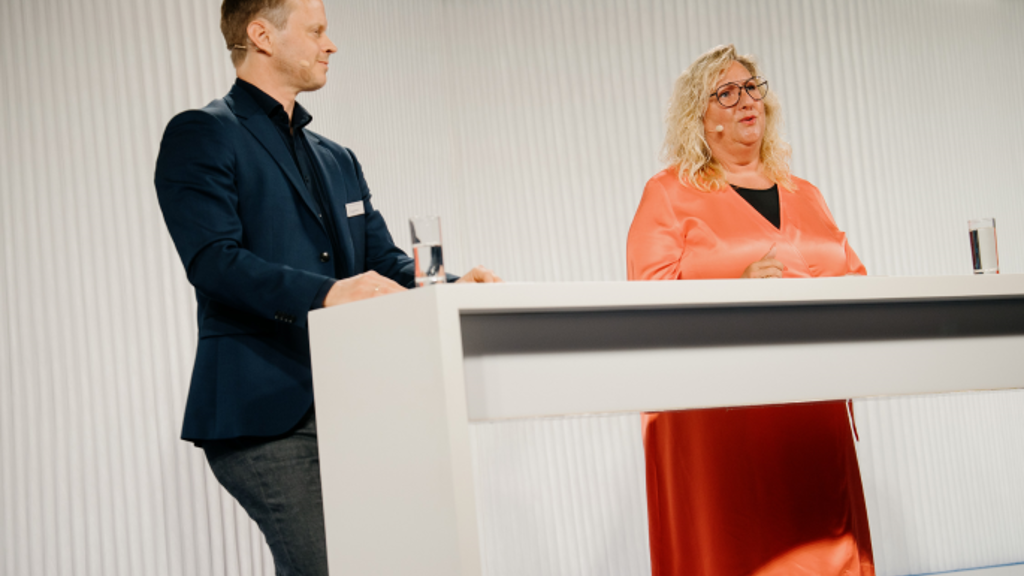
During the latest year, Finansforbundet has gained 400 new members. It is the result of i.e. a range of ’visibility events’ in different work places and by existing members helping to sign up new members and receiving a reward of 400 DKK.
Still though, it is important to gain more members. Especially the young colleagues – as they are an important part of our future.
Mette Balck Mejlby was happy that the satisfaction survey in Finansforbundet showed a high degree, far over benchmark, when it comes to recommending Finansforbundet to others as well as to the sufficiency of ones own as a member.
”That, we can be proud of,” she claimed.
8500 voices cannot be ignored
Nordea has now ten unions across the countries to negotiate with. Of those, we are five unions who for many years have built up a unique partnership, and we stand strong and united in ’Union in Nordea’.
The latest example of standing united on common topics is our cross national survey on hybrid work.
”To say it out loud: We weren’t exactly popular at Nordea, making this survey, now that they have sent the message of minimum three days at the office and maximum two days remote. We don’t believe that ‘One size fits all’ is the way forward. That is clearly also what the results show us, and we have brought that message to the management. We have heard from many, especially in global teams, that they feel both neglected and more lonely and find it difficult to see the meaning of fulfilling being 60 per cent at the office. It is a special focus area, and we have a dialogue with Nordea on this issue,” said Mette Balck Mejlby.
More transparency
She wants Nordea’s top management to show trust and make room for common sense, giving the leaders the key to their own business, even in this area.
”We promise to continue the dialogue with Nordea’s management and bring forward your perspectives and wishes – it is our foremost duty. 8,500 voices should not be ignored,” she said.
President Kasper finished the oral report with another promise. Namely to work for more transparency and more dialogues on the critical issues.
”Nordea Intra has in certain areas got the name ‘Halleluja News’, and you must not think that we don’t like celebrating successes. But if our brand only puts up with flattering, we have a serious problem. Diverse views should be valued – not closed down. You must never be in any doubt that in Finansforbundet in Nordea we will always have the courage to bring forward the critical issues,” Kasper Skovgaard Pedersen concluded.
Salary high on the list
One hour was allocated to the debate on the report – and every minute was used.
To take the temperature on what was present at the participants, they could all add topics into a ‘word cloud’.
Here, there was no doubt that salary and hybrid working came in with a big majority – closely followed by wellbeing.
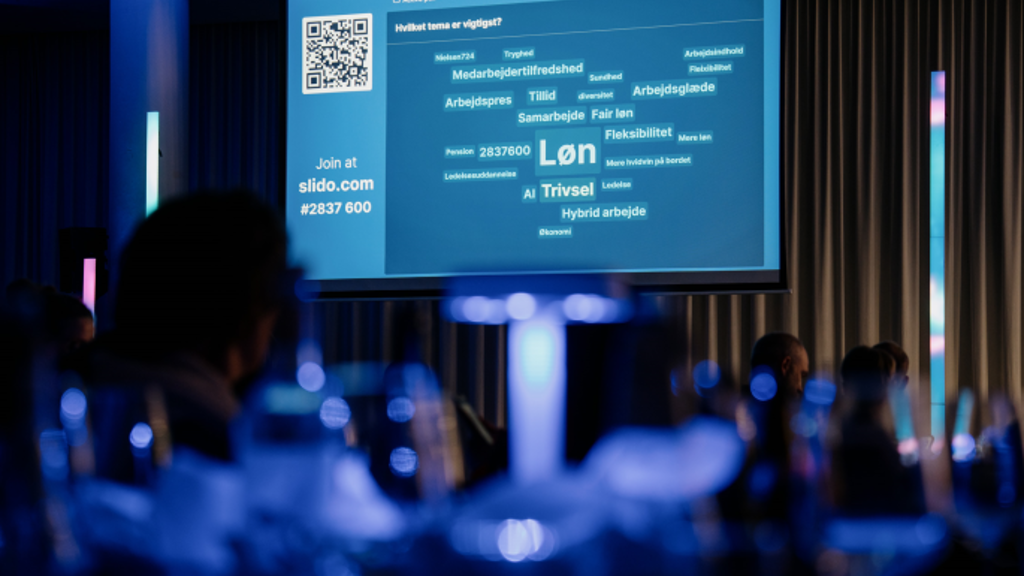
The debate on salary brought a widespread unsatisfaction to light regarding newly engaged colleagues being put in at the lowest end of the salary span, thus afterwards needing to be helped up via ‘Nordea løn’.
”It simply cannot be true that they all come in without any skills with the need of a position in the bottom of the salary span,” Mette Balck Mejlby said.
Many members didn’t feel that the loyal employees are valued enough, and they got big support from the congress hall.
Another part of the salary challenge is the difficulty getting a pay rise once you are in.
Several were worried on staff exodus, especially among the young advisors.
It was a widespread perception that the competing banks pay a better wage, and that the easy way to getting a pay rise is a trip to another job outside – and then return, now with a better wage. Something that means empty chairs to fill out by the remaining colleagues.
No room for sitting together
The hybrid working life is still challenging. Many are struggling with not having the space to be with their team when working from the office.
”You need to be able to sit together, so promise me to shout out to the union representative if it happens – so we can take up the case. It must be possible to arrange,” said board member Louise Have Lund.
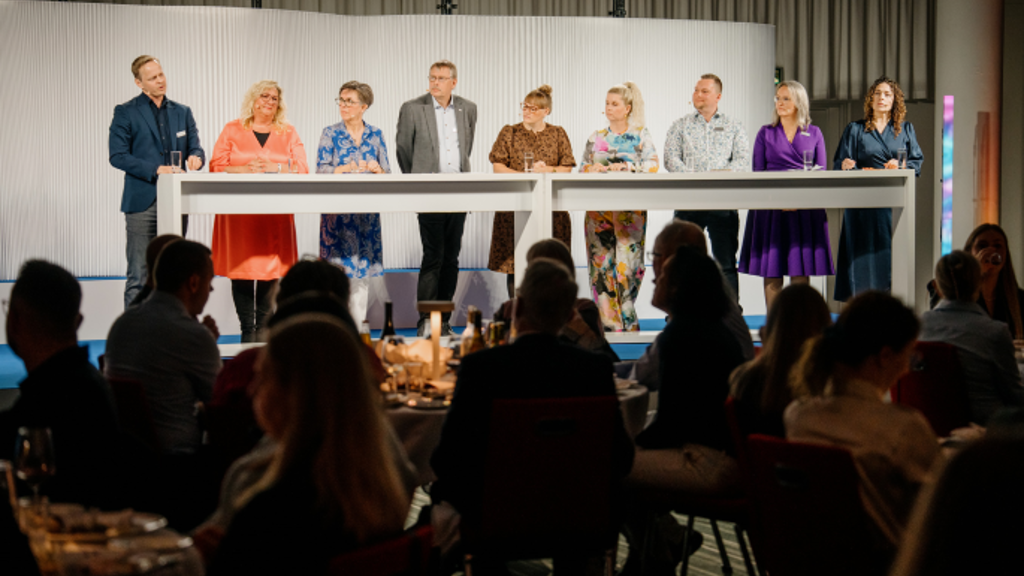
The board had as well seen an increase of the amount of stress and failure to thrive among the employees when their leader is not physically close to them.
The debate turned to the question on effectiveness and job satisfaction. What is a job, essentially?
”Our survey results show that it feels less effective to be in the office than working from home. We are talking with the management about how to make it feel meaningful to come into the office and be with the colleagues,” said Mette Balck Mejlby.
Frederik Cramer, senior union representative in Nordea Finance, wanted it to become more attractive to come into the office.
”We have become much too busy to meet at the coffee machine and to the small disturbances. And thus we have lost the time to learn from each other – instead we slog away for 37 hours every week,” he said.
The Nordic in ”Nordic Ideas” came up for discussion. Some leaders are not of Danish origin, and to some it comes with challenges regarding the knowledge of Danish work place culture and the Danish model.
Natascha Bødker Feodor Nielsen from the board advocated for an English languaged training for union representatives.
”A lot of people want to join the community and it could strengthen our efforts to gain more members,” she said.
The problems with the Time bank initiated several questions as well.
”If it was the customers’ money and not our working hours being handled this way, I am sure the FSA (The Danish Financial Supervisory Authority) would arrive,” a participant in the congress hall said, receiving applauds.
Erik Børsting, senior union representative for Technology in Hermes Hus, added that some IT employees have set up the system to automatically create screen dumps from the Time bank every morning and evening, as they experienced that hours could disappear in an unexplainable way.
He also talked about the challenge for employees on the Job Salary conditions, interpreting the ’independent work planning’, now and then combined with the demand of working in the evenings or even 20 weekends per year.
”It is a general problem, as well as the increasing amount of employees on an individual contract, asking questions on their benefits from being a member of Finansforbundet,” Erik Børsting said.
The president came to her home area
President of Finansforbundet, Dorrit Brandt, made a speech in her – now – former home area.
”How great it is to come home,” she started and received a massive applaud.
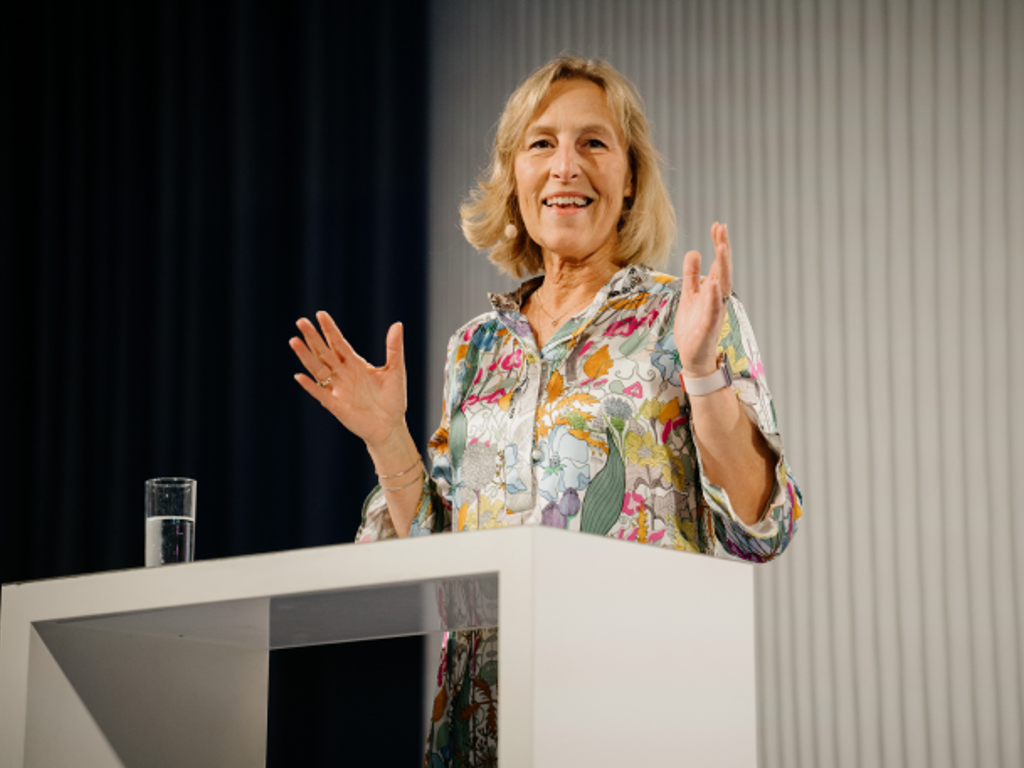
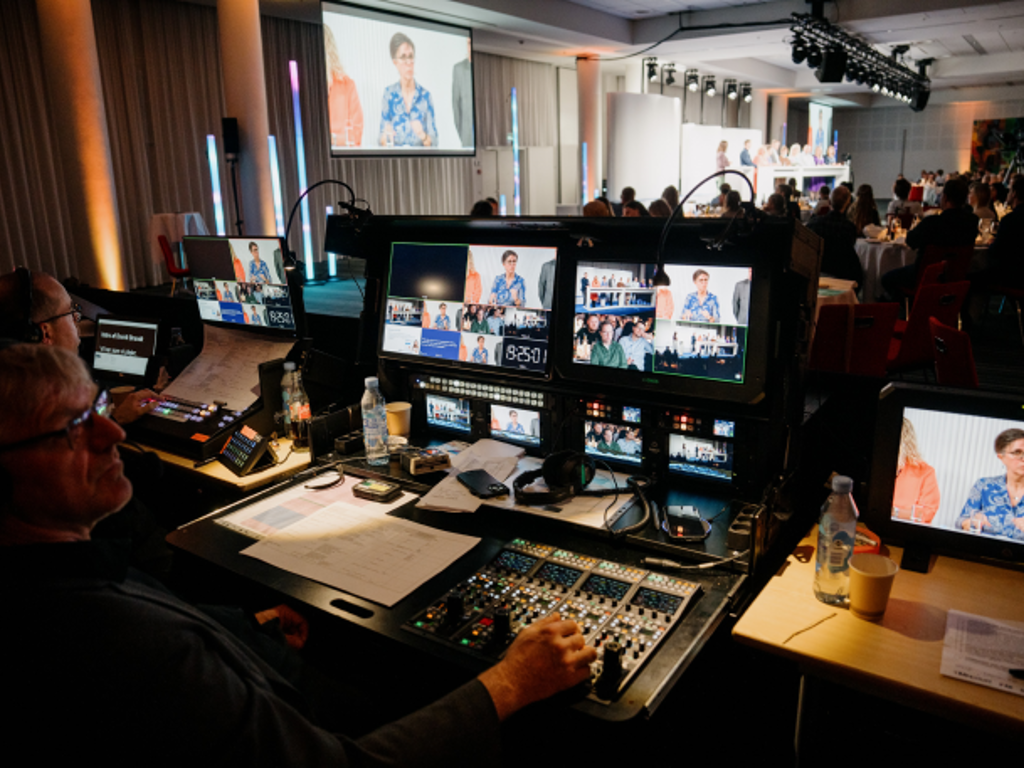
One of the wishes from the new presidency of Finansforbundet is to have a deeper dialogue with the base, and the latest six months, Dorrit Brandt and the two vice presidents have been in several meetings for members.
”I promise you that we will come out in the future as well. It is highly important to us, listening to what is important among the members,” Dorrit Brandt said.
Dorrit Brandt is proud of the union’s ability to develop and that is something she really makes a point of continuing.
The union has grown with 1.000 members during the latest year. But Dorrit Brandt came with a big call to all members on helping:
”We are now 57,000 members. But the 50-70-year old account for 53 per cent, whilst the 20-40 year old are 30 per cent. I cannot underline enough that we need everyone to help getting the young ones on board. It is important for our legitimacy as well as our future,” Dorrit Brandt said.
Dorrit Brandt rounded the bad reputation of the financial sector as well, including the way it rubs off to the members in Finansforbundet.
She and vice president Steen Lund Olsen were at Christiansborg in December, speaking with Minister of Business and Industry, Morten Bødskov.
”We managed to put focus on the important difference between throwing suspicion on the companies or on our individual members.”
A historical year in Finanskompetencepuljen
Finanskompetencepuljen turns 10 years this year, and Dorrit Brandt told about another milestone: Nordea has, for the first time in the pool’s history, used every DKK available in 2023. That has never happened before.
Looking at the entire Finanskompetencepuljen, a total of 10,001 financial employees enhanced their competences last year, using the pool. These amounts show the relevance of ensuring the continuity of having money in the pool, she underlined.
Time to look at the costs
Jeppe Lermark Pieszak, board member and political treasurer, presented the financial report, showing an operational deficit of 600,000 DKK. It was, though, saved by prudent investments in shares and bonds that provided a return of more than 800,000 DKK, meaning that the equity all in all grew a little and the year-end result was positive.
”We send a big thank you to Nordea Private Banking, where we are still very happy customers. In the latest financial year we have seen our investments succeed, but if we look into more years like 2022, our kitty will soon become empty”.
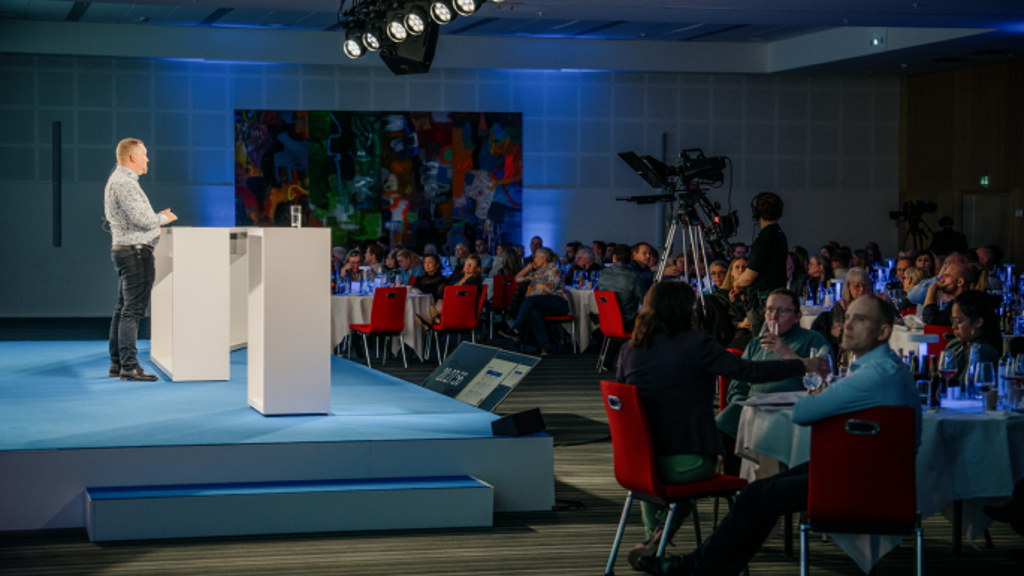
In 2022, the accounts ended with a deficit on investments of approx. 1,700,000 DKK, due to general price losses in the market.
“Therefore, we cannot continue delivering deficits in our operations. The latest six financial years show deficits of approx. 600,000 kroner, except for the years with corona where we were forced to conduct a virtual-only setup for the annual general meeting and also cancelling a lot of activities.
”Luckily we see a membership progress now, and likewise the membership fee has been adjusted, both having an effect on the accounts in the future. But the board has decided to keep an eye on the operational result in the time coming and will strive for balance in the accounts,” Jeppe Lermark Pieszak ended.
Standing applaud for the new president
Though having acted as president since fall, Kasper Skovgaard Pedersen still was ad interim, and thus he needed to be elected.
Vice president Mette Balck Mejlby introduced the president herself. Actually, she was the one that ten years ago, encouraged him to enter the union work with his passion and drive.
”It is a united board supporting and recommending him. He is standing strong in good as well as bad times, and his big charm is only an additional benefit,” Mette Balck Mejlby said.
He was elected with a big, standing applaud.
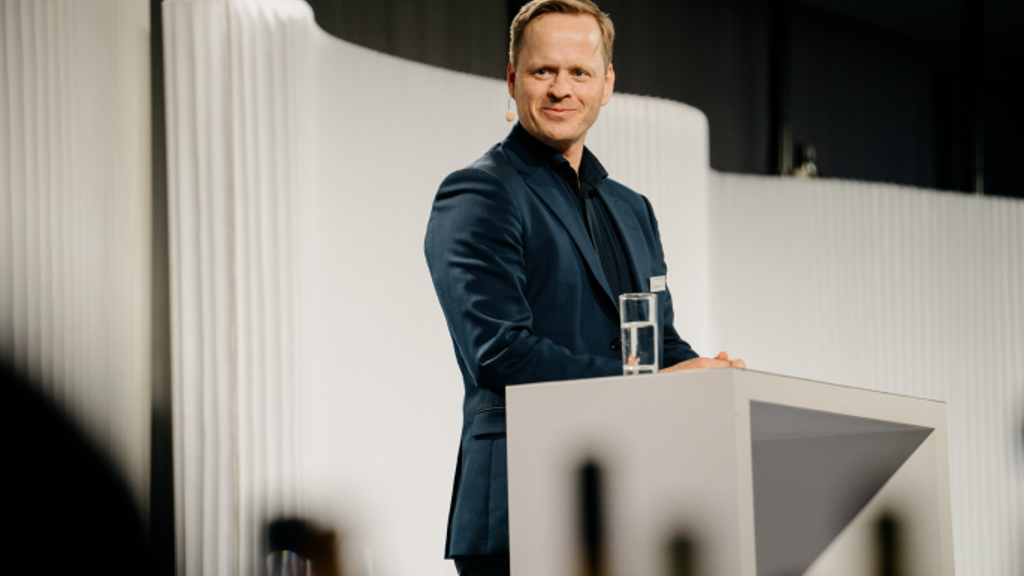
”It gives me the shivers hearing such fine words and receiving the expression from you. Thank you so much for the confidence, being allowed to be president of Finansforbundet in Nordea. It is, though, quite easy,” he added, smiling – ”because we have so fantastic and skilled union representatives as well as great and clever board members. Hence, I am only a figurehead – with a few opinions. I’d really like to be such a person,” the moved, new president ended.
After the formal meeting, Sigurd Barret entered the scene, showing that he can be strongly entertaining to adults as well.
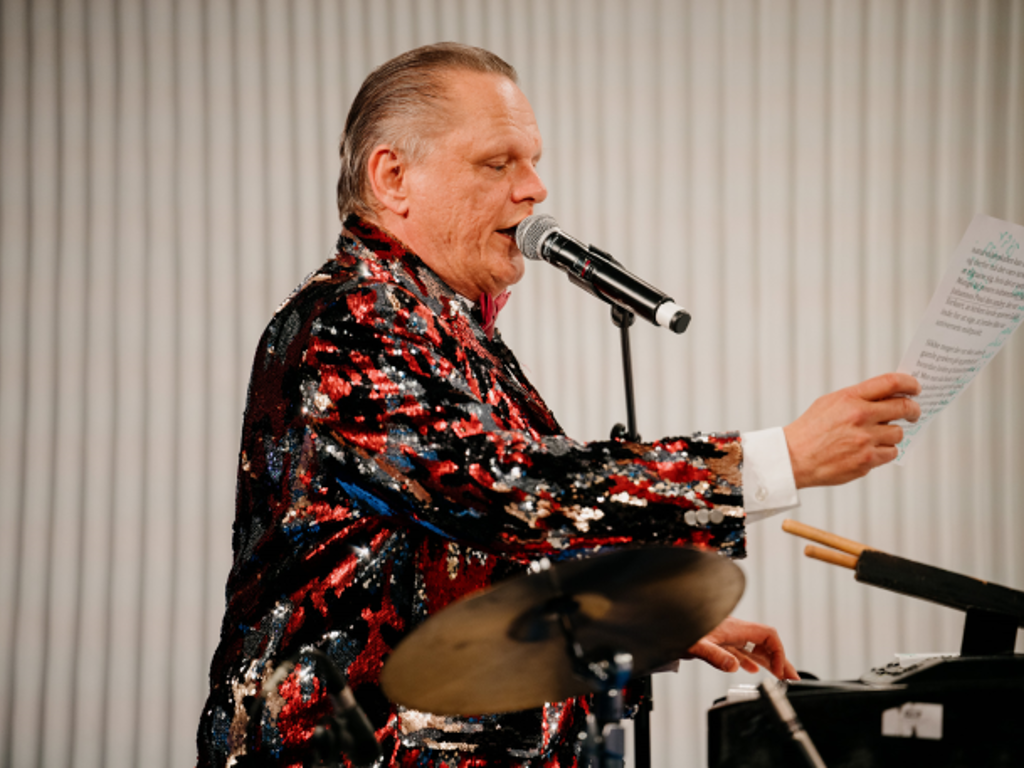
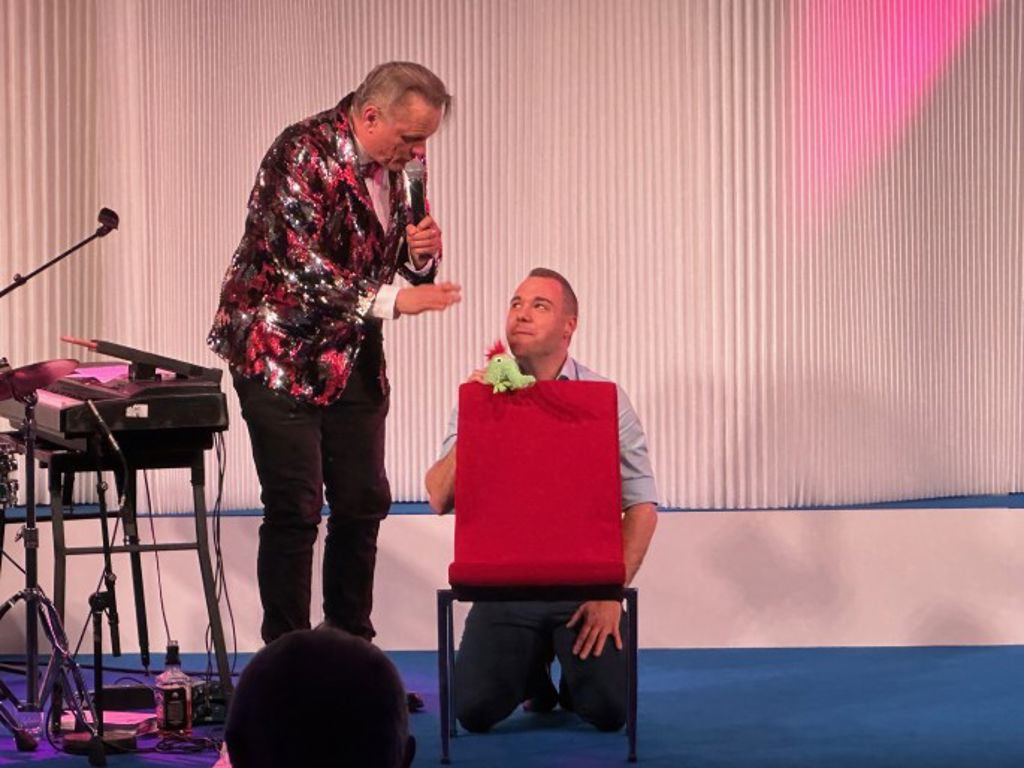
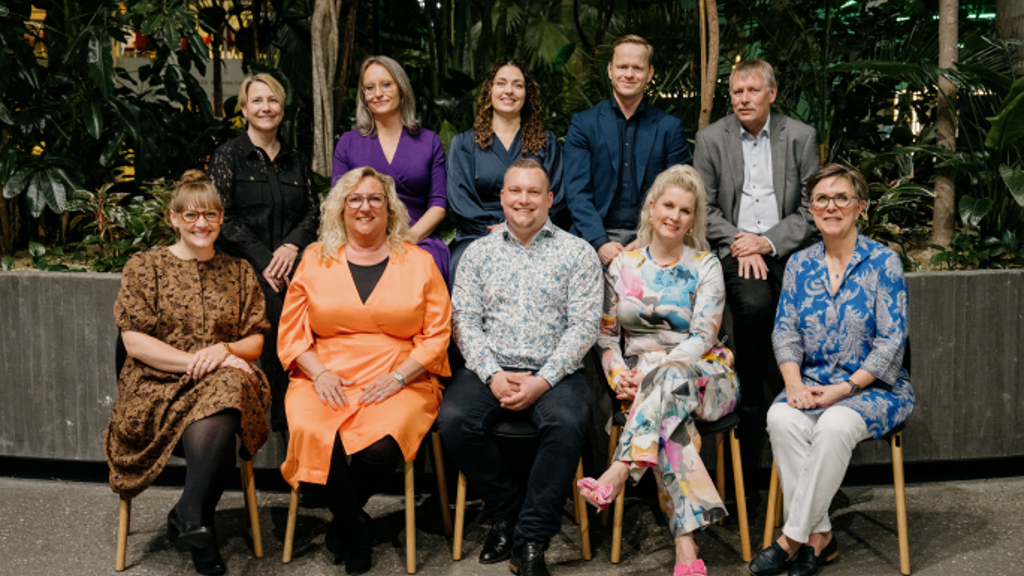

Elections on the annual general meeting
- Elected as president for one year (according to the statutes, the president is normally elected every odd-numbered year): Kasper Skovgaard Pedersen
- Elected to the board for two years: Katja Larsen, Louise Have Lund, Louise Naur and Ole Lund Jensen
- Elected as deputy to the board for one year: Marianne Bjørn Winther
- Elected as auditor for two years: Bettina Tuladhar Holmfred
- Elected as deputy auditor for one year: Joan Hangaard Pedersen
All elections were uncontested.
The board members Jeppe Lermark Pieszak, Natascha Bødker Feodor Nielsen, Mette Balck Mejlby (vice president) and Mona Svan were elected to the board in 2023 (Jeppe, however, as a deputy and became board member in the fall) for a two-year term and were thus not up for election this year. The same applies to auditor Jens Kjær.

Superhero facts
To test the voting system, an initial vote on which super-power the participants would prefer to own. And here, the ability to read other people’s thoughts was the winner, beating wings to fly as well as ‘not growing old’.





